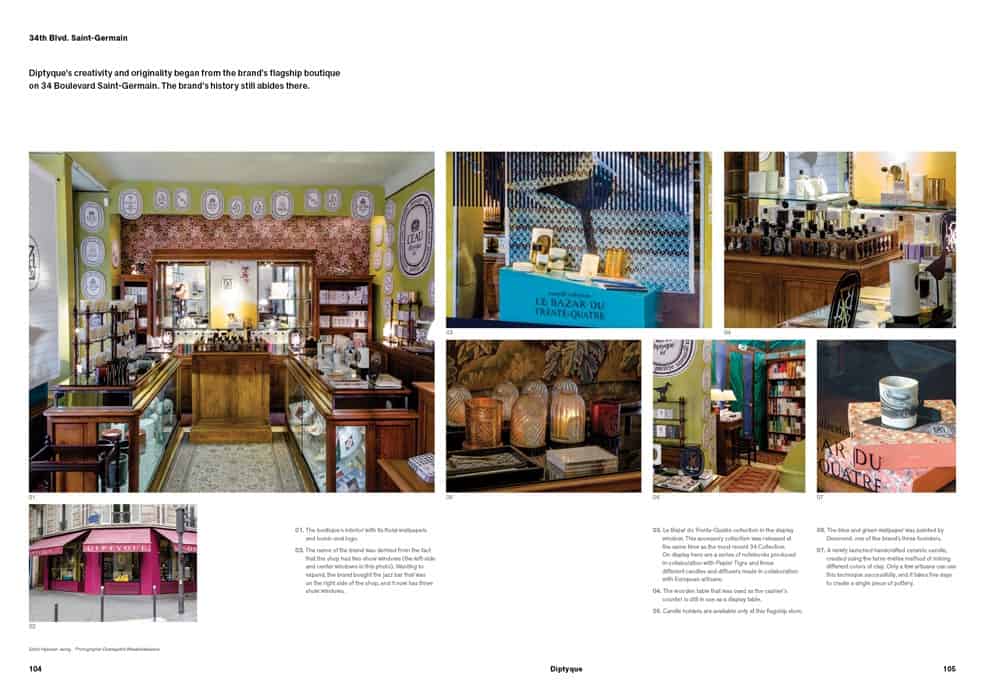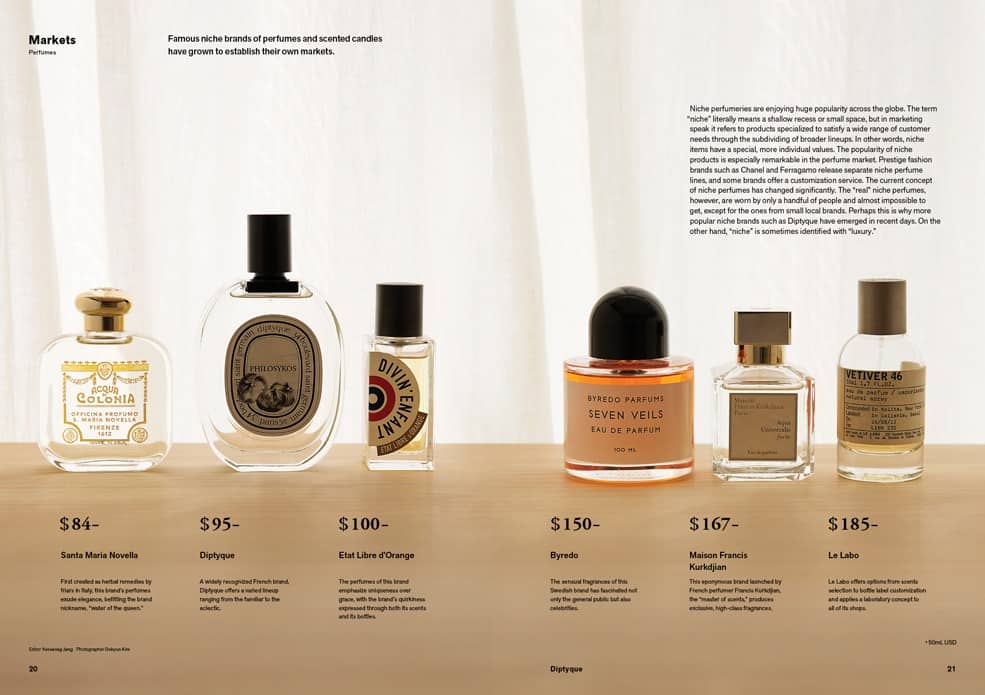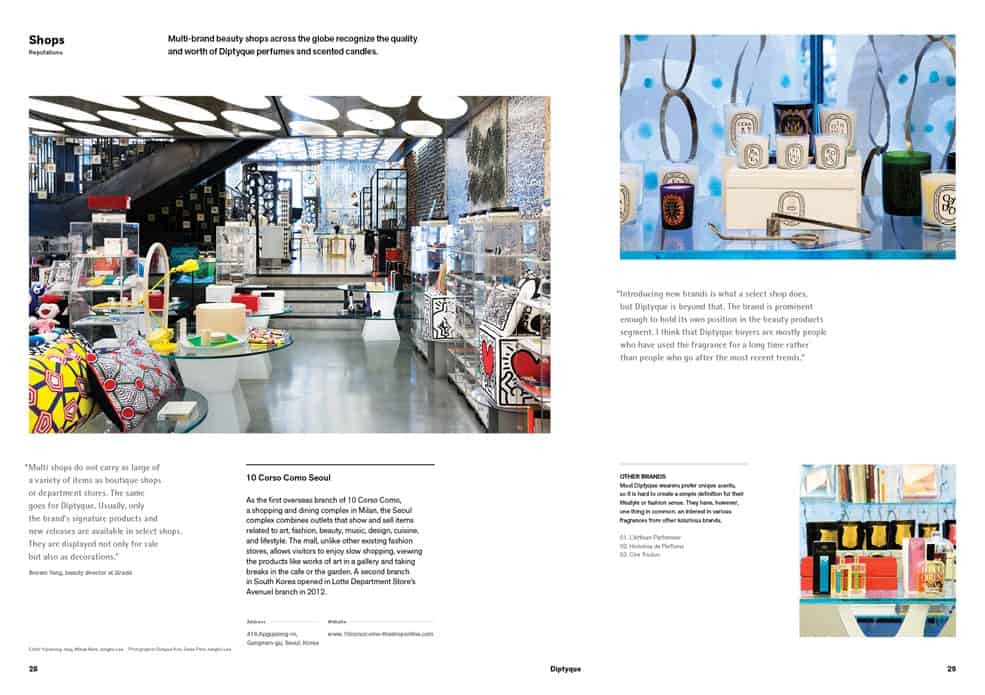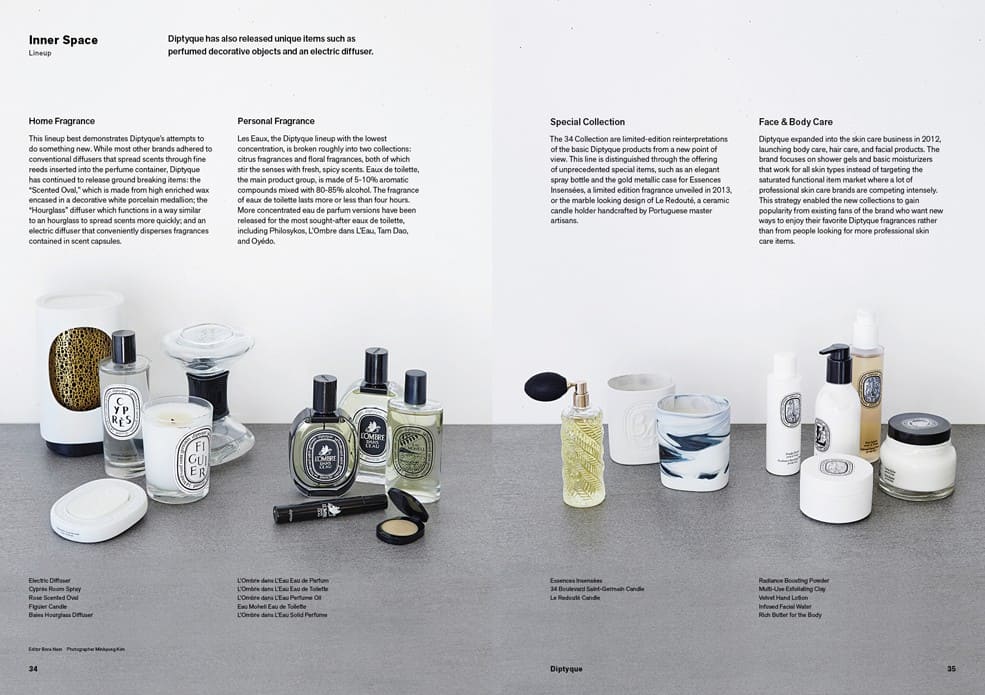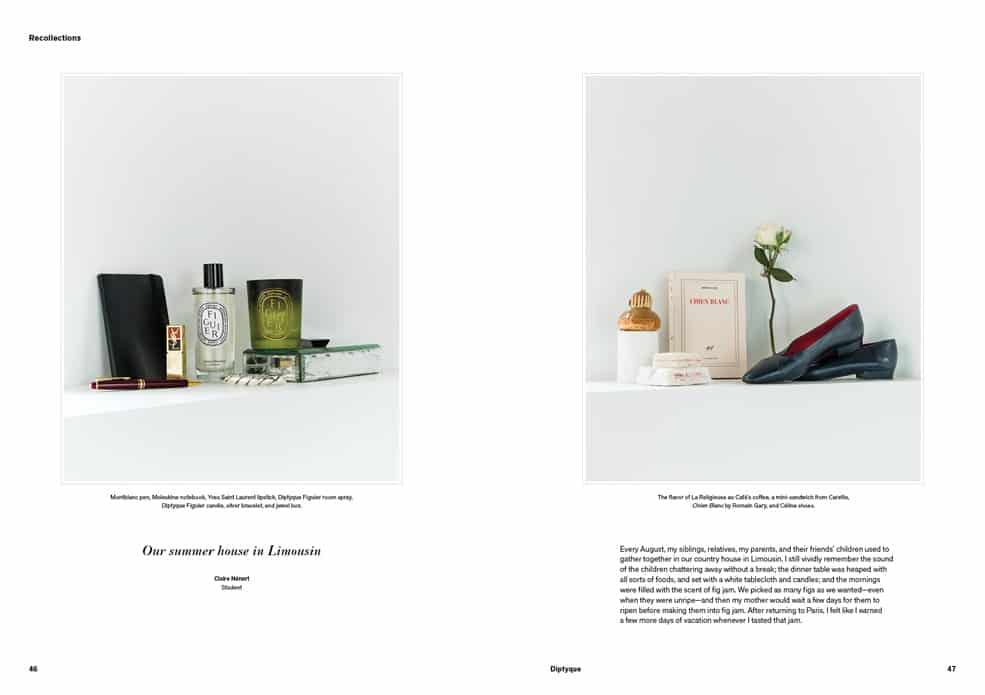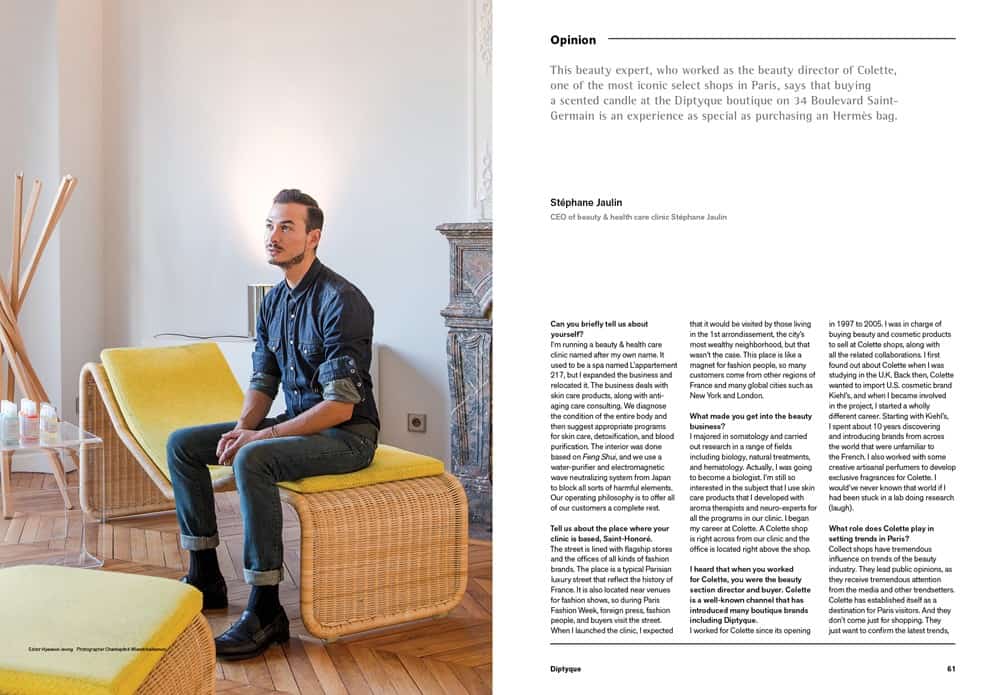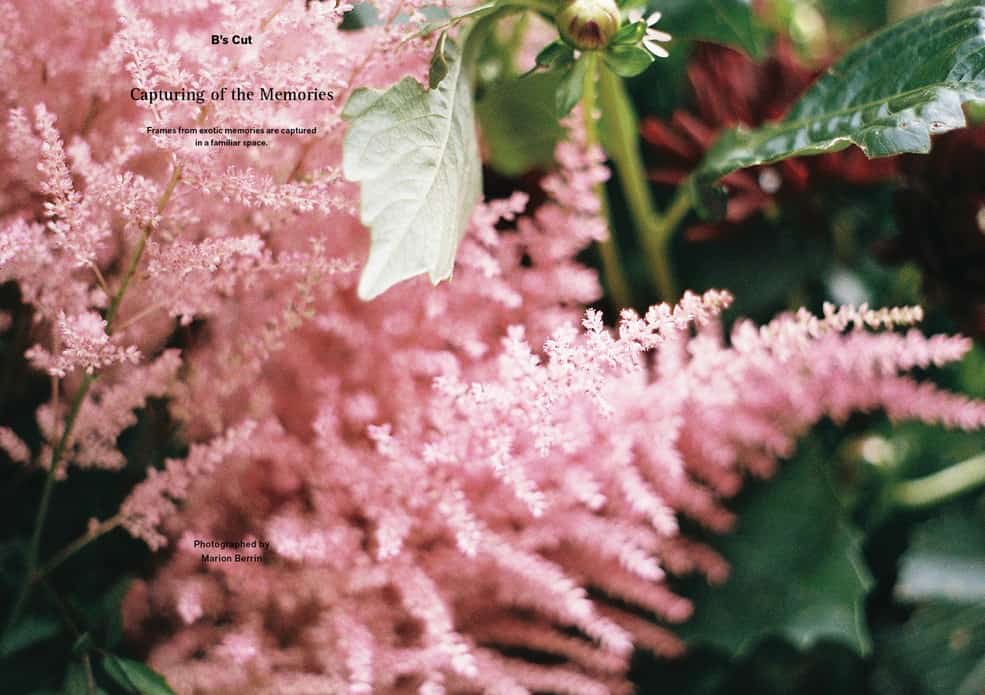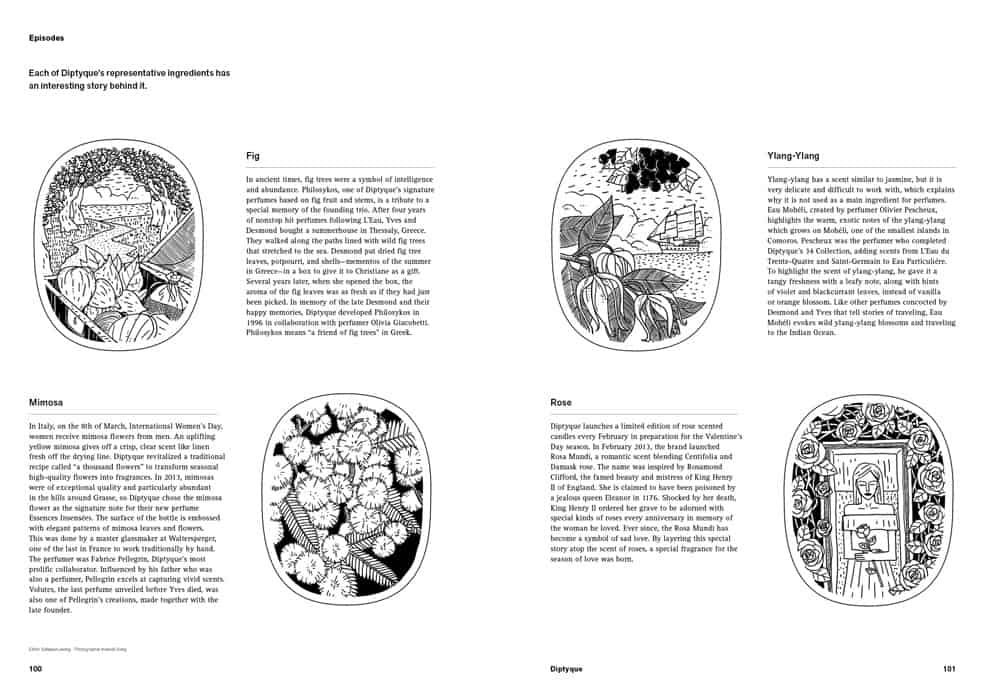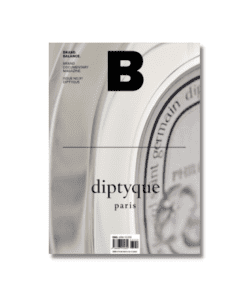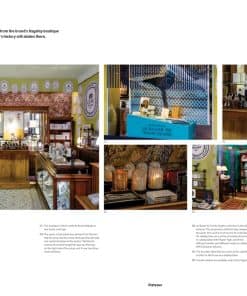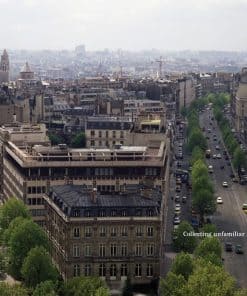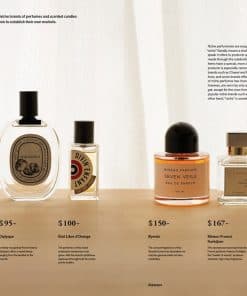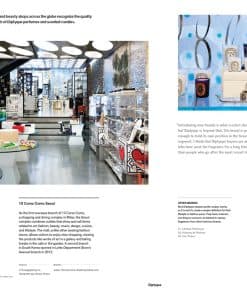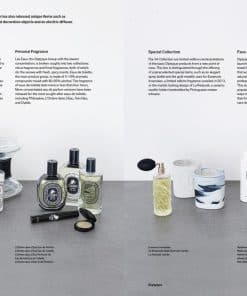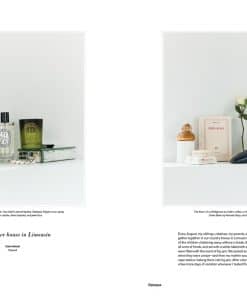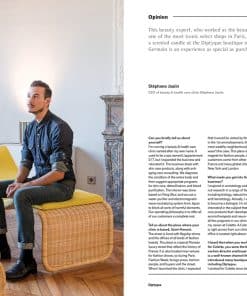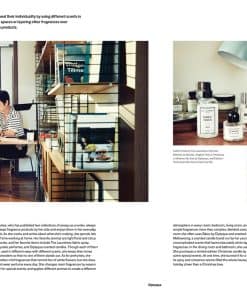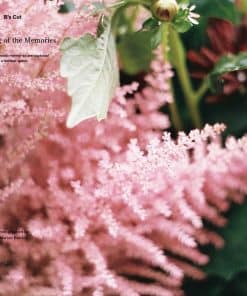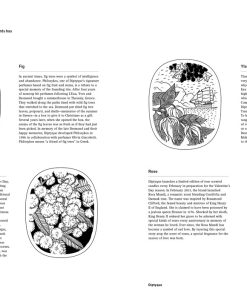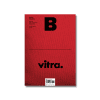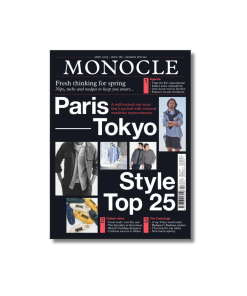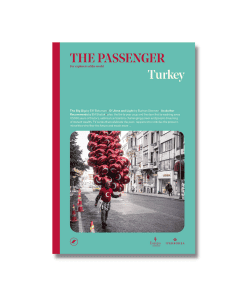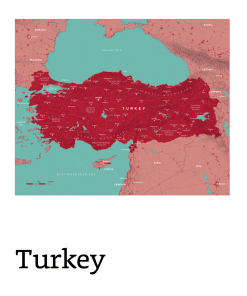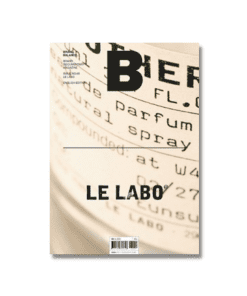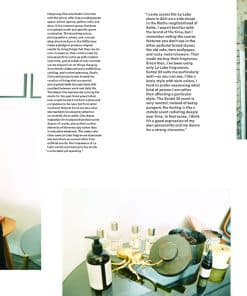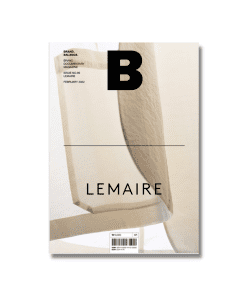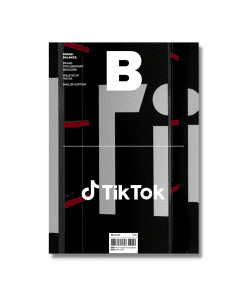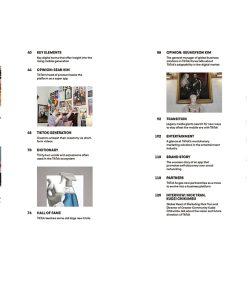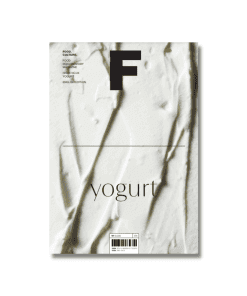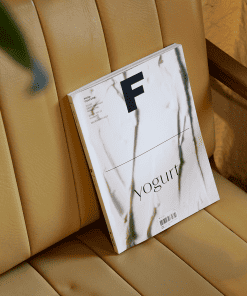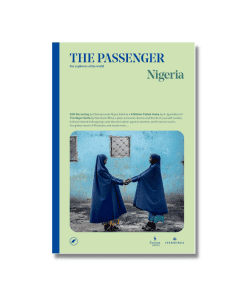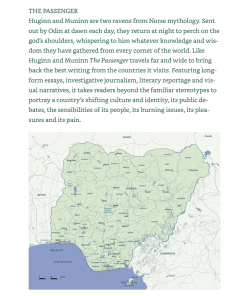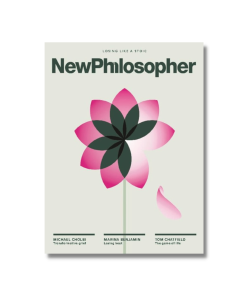Magazine B No.31 DIPTYQUE
480.000₫
INTRO
PUBLISHER’S NOTE
COMMENTS
Some fragrant moments with Diptyque captured on Instagram
SURVEY
Lifestyle brand preference survey, with a focus on fragrances
MARKETS
Perfumes Perfume market brand positioning analysis
Scented Candles
Scented candle market brand positioning analysis
OPINION
Myrto Dimoula, a lover of scented products
SHOPS
Reputations
Diptyque seen through the lens of concept stores that carry the brand
INNER SPACE
Lineup
Diptyque’s product lineup from scented candles to skin care products
Representations
Diptyque’s individuality revealed in its interpretations of candle fragrances
Design Language
Perfume brand vision as revealed in bottle and label design
OPINION
Kitae Kang, CEO of Maison des Bougies, a scented candle brand
RECOLLECTIONS
The special memories and objects recalled in Diptyque fragrances
OPINION
St.phane Jaulin, former beauty section director at the select shop Colette
INFLUENCE
Niche Startups
Boutique fragrance brands create new possibilities
LIFESTYLE
Scent Layering
Scent layering reveals the user’s individuality in diverse ways
B’S CUT
Capturing of Memories
Photo essay by photographer Marion Berrin
BRAND STORY
From the foundation by three artists as a small fabric boutique to becoming an iconic global fragrance brand
BEHIND THE DESIGN
Diptyque’s design language looked through six elements
EPISODES
Some of the stories behind the development of Diptyque’s representative materials and products
CELEBRITY’S NOTES
Celebrity comments on Diptyque
34TH BLVD. SAINT-GERMAIN
A visit to Diptyque’s flagship store
INTERVIEWS
Fabienne Mauny, Managing Director Myriam Badault, Marketing & Product Creation Director
FIGURES
The global scented product market and brand positioning
FACTS
Interesting Diptyque facts
FROM THE EDITOR IN CHIEF
Diptyque’s core values
OUTRO
Cho phép đặt hàng trước


